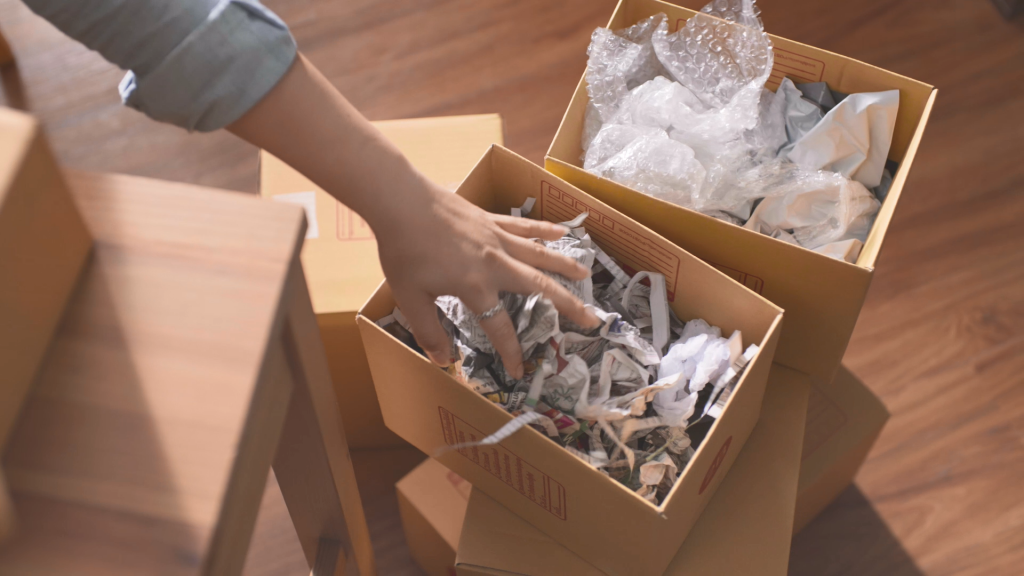Bangkok Pilot Model
“Mega CityProject: Collaborative Urban Waste Management for Circular Future”

DIVERT WASTE DESTINATION FROM LANDFILL TO CIRCULAR REVIVE
Bangkokand vicinity are metropolitan areas where the existing well-care waste management systems might not be able to accommodate the expansive growth of the city urbanization. Especially, the rising of plastic waste packaging and others via lifestyle changes and the waste management capacity mismatch could later become problems that may impact the quality of life and the health and hygiene of the city communities. To solve such problems of highly-populated city, we will need a full integration of multi-disciplined knowledge, capabilities, and co-operations from all sectors to prepare and develop the most suitable infrastructure to accommodate new circular economy concept of waste management. With this concept, we need new business models that align and balance the cost of waste management operations and fair exchange of benefits among stakeholders within the value chain. Thus, all plastics could be reused and recycled or so-called revived via a circular economy model and not end up in municipal landfill or waste-to-energy (W2E) incinerator that will impact long term sustainable environmental management still.
FULL COOPERATION OF GOVERNMENTS, PRIVATES, & CIVIL SOCIETY SECTORS FOR SOLUTIONS
The Bangkok pilot model is the project under cooperation among governments, private sectors, and civil society sectors or the so-called “Thailand Public-Private Partnership for plastic management (PPP Plastics)”. The PPP Plastics is founded by the Plastic club of Federation of Thai Industry-Plastic Industry (FTI-Plastic Industry), Thailand Business Council for Sustainable Development (TBCSD), Government sectors namely Ministry of Natural resources and Environment, Bangkok Metropolitan Administration, and more others including also Non-government and Non-profit organizations. The mission of PPP Plastics is to develop sustainable solutions that help manage plastics and municipal solid wastes sustainably. They have initiated waste management projects in some pilot areas of Bangkok and Rayong province using circular economy concept. In the near future, PPP Plastics will be working in collaboration and funding from the Alliance to End Plastic Waste (AEPW), a global non-profit organization founded by some of the world’s largest organisations representing the full plastic chain.

“DROP-OFF POINTS” CONNECTING WASTE TO CIRCULAR VALUE CHAIN NETWORK
This is the pilot circular infrastructure set up to collect some plastic wasteusing a drop-off point concept. It includes research studies to help understand key mechanism of circular infrastructure from this new initiative. The research will cover people’s motivations for exchanging/trading and for sorting at source; the needs of stakeholders in the big-city waste value chain, and consumer behavior at Drop-off point. The integration of digital platform and semi-automated bins will be applied to aggregate, to collect, to transport, to manage, and to help trade wastes within a circular ecosystem of new business models. This digital platform will be used also as a tool to communicate, build awareness and educate consumers, operators, and all stakeholders in the ecosystem. This will connect and benefit the value chain. Collective ideas and innovative solutions from different societal sectors including the youth and the general public will be a good start to help the collect-back of all plastics for recycling and waste utilization for upcycling. This could be the starting point of an alternative Open-Market for on-line waste trade where international certified-standards could be applied. The collective information within the digital platform could be key information to support government’s understanding of what are needed to effectively support improved circular infrastructure for better waste management system in the future.
Video
No video yet.
Brochure
No brochure yet.


